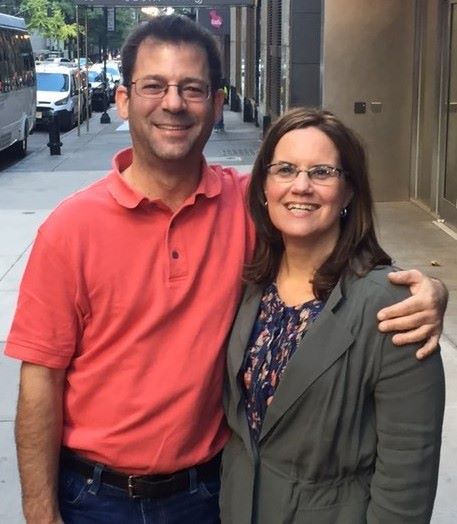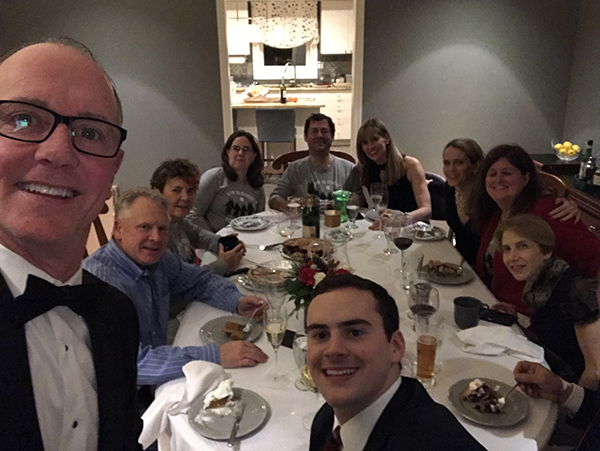I was thrown into the role of caregiver when my husband, Jon, was diagnosed with glioblastoma. I wanted to be the best care partner possible, but that was hampered because it was impossible to make caregiving routine. Furthermore, Jon underwent daily radiation during the holiday season, leaving him fatigued and unsteady on his feet.
These are some nuggets that helped me through this difficult time:
1. Find a distraction. During this difficult time, find ways to forget about [the tumor]. For me, having friends over was a wonderful diversion. Plus, I didn’t have to drive anywhere, and I could enjoy a glass of wine. Connect with a friend for lunch or get a manicure. If you need a break from driving but don’t want to miss a party, carpool with a friend, or use a car service.
2. Accept help. People want to help. Take them up on it. Friends rearranged our family room to accommodate our guest bedroom bed and a bedside commode. Our home was not feeling very festive, but friends were determined to include us in our traditional holiday festivities. They arrived in their black-tie attire and brought all the ingredients for an amazing dinner. They pulled together the dining room, cooked, and cleaned up. It was initially uncomfortable asking for and accepting help from friends, but it was a huge weight off my shoulders. I greatly appreciated when they visited Jon, allowing me to step away.
3. Delegate and outsource as needed. Outsourcing some household tasks was necessary too. Under normal circumstances, Jon would operate the snow blower, so it was time to hire a company to plow our driveway. I alerted them of our morning schedule to ensure our house was the first one treated after a storm. Both the weather and service cooperated, and we never missed an appointment.
4. Skip sending holiday cards and use the time and money to be good to yourself.
5. Don’t sweat the small stuff. When the house got messy, I looked the other way.
6. Fashion needed to meet utility in my new lifestyle. For Hanukkah, I asked my mother-in-law for a stylish backpack. This eliminated the burdensome combination of a tote bag, purse, and lunch box. I was unencumbered; I had my hands free to haul Jon’s walker, wheelchair, or keep a tight hold on my husband.
7. Voice your requests. In place of unhealthy Christmas cookies, I asked for a homemade meal. It was not only delicious but easy to heat and serve, making cooking one less chore.
8. Speak honestly. Jon and I talked a lot, expressing our feelings and fears. We were each other’s emotional rock, supported by therapists. We leaned on each other, wrote in our journals, and shared our concerns with close friends and family. We had open and honest conversations with ourselves, and in our tight inner circle, there were no secrets or regrets.




